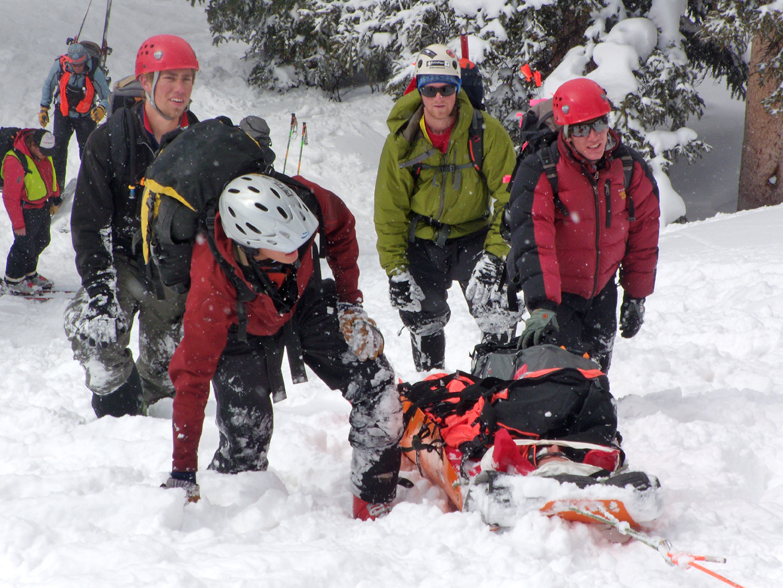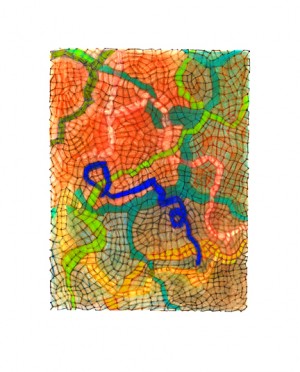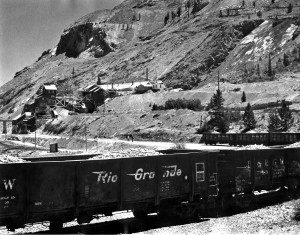by Luke Mehall
It started with a professor lost in the mountains of the Gunnison backcountry in the 1960s and it’s grown to be the top college-based mountain rescue team in the United States.
“We don’t have an exact record of when the team started, but the story is that a professor was lost in the mountains and a group of students and teachers banded together to find him,” Chip Lamar, team leader of the Western State College (WSC) Mountain Rescue Team said. “These types of searches continued to happen and then the team got involved in more technical, rock climbing rescues.”
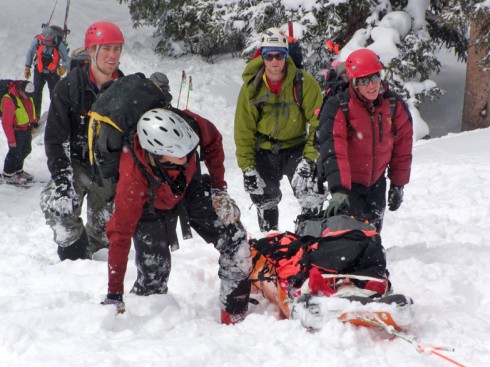
Lamar holds the highest position on the team. He is a 2004 alumnus of Western and has been involved with the team in one capacity or another for the last ten years.
Today, “The Team,” as members fondly refer to it, consists of eighty percent college students, who are on-call 24/7, year round. They go through rigorous recertification processes every five years, conducted by the Mountain Rescue Association (MRA). They train one to three times a week and conduct an average of 20-35 missions per year. The team is composed entirely of volunteers and typically numbers 35-40 members.
One of their leading philosophies is, “No one is too small to help someone else.”
“We are the only MRA-certified college-based team in the country,” Lamar said. “And we get respect from our peers, many whose team members are much older and more experienced.”
The team covers a wide variety of terrain and rescues: from lost hunters in the wilderness to injured rock climbers at the bottom of the nearby Black Canyon. The team also trains in the winter for avalanche rescue, though summer and fall are the busiest seasons.
For team member Jason Holton, a senior at Western, strong leadership lessons come from the rescues and trainings. Holton has had a variety of experiences with the team including avalanche and rock climbing rescues. He’s also flown in helicopters and been dropped off for searches on 14,000 foot mountains.
“For a college student I can’t think of a better way to learn leadership skills,” Holton said. “I have to be available to go out in variable conditions quickly, communicate with the Sheriff’s office, and make important decisions for people’s lives and safety.”
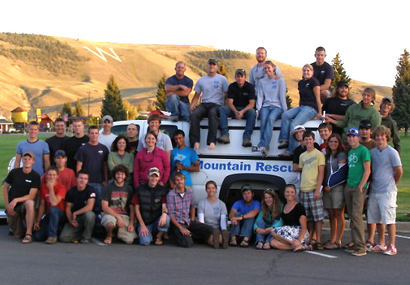
Holton also has a personal connection for his search and rescue service. His brother was involved in a plane crash in Blackhawk, Colorado and his life was saved by the National Guard as well as local search and rescue members.
“This event in particular has inspired me to give back,” Holton said.
Holton has also learned that the time to save someone’s life can be a small window, so efficiency is something that the rescue team strives for.
“That’s why we host so many trainings,” he said. “Sometimes we find people in a gray area and the clock can be ticking on their lives.”
Hannah Cottier, a sophomore at Western, is one of the younger membesr of the team. “I just jumped right into it,” she said. “The people are awesome on the team. It’s a great group and I enjoy being available to help people who are in need.”
“I’ve learned to be confident in the outdoors,” Cottier said. “It can be intimidating because of the mountainous terrain here in the Gunnison Valley, but our training prepares us well.”
For Lamar the cohesion of the team is at the heart of their success. “We rely on each other so heavily and we build strong relationships,” he said.
He also enjoys watching the maturity process as they progress from teenagers to young adults. “I love watching a young eighteen-year-old progress in their confidence and competence,” Lamar said. “Over four years the progression can be quite profound. I get letters from alumni all the time that share how important being on the rescue team was to their lives.”
“And at the end of the day, it is such a good feeling to go to bed knowing that you helped someone who was in need.”
Luke Mehall was a member of the Western State College Mountain Rescue Team for two years. He is a 2004 alumnus and is currently employed in the office of public relations and communications at Western State College.
